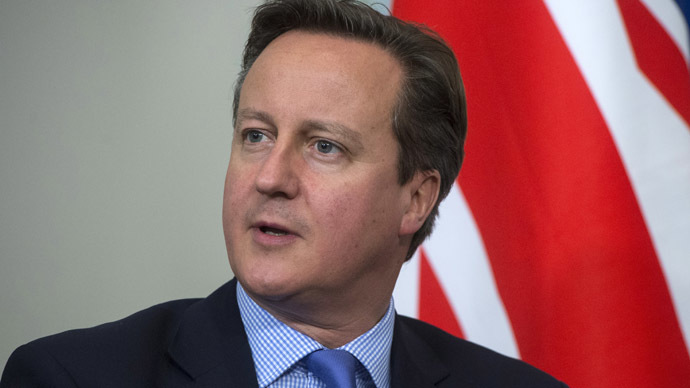PM’s anti-terror plans ‘not thought through’ – govt legal expert

The QC tasked with reviewing the UK’s anti-terror laws claims Prime Minister David Cameron’s policies were announced without any thought given to their actual implementation.
“I sense that this was an announcement waiting for a policy,” said David Anderson QC in parliament on Wednesday. The chief reviewer of anti-terror laws said the recently unveiled plans to prevent jihadist fighters returning to the UK were “nothing like as dramatic” as laid out.
Criticism from Anderson follows the announcement of the Counter Terrorism and Security Bill by Home Secretary Theresa May on November 26, amidst high expectations.
Speaking to a committee of MPs, Anderson said the plans laid out by Cameron in September would not stop jihadists returning forever, so should rather be called “powers of managed or controlled return.”
In a blog post written to address the background to his latest report, Anderson said the Terrorism Prevention and Investigation Measures (TPIM) were “considerably less onerous” than the control orders they replaced.
The Home Office also released predictions about the performance of the latest measures, claiming officials expect to seize 50 passports each year from jihadists planning to travel to Syria or attend extremist training camps.
The Home Office believed at least 15 suspected terrorists could be placed under the re-evaluated TPIM measures, which mean they can be “relocated” and forced to remain in internal exile 200 miles away from associates.

Anderson previously criticized the TPIM measures in his secret report on the latest anti-terror legislation. He claimed unless subjects of investigation are relocated, imposing an “exclusion zone” would be of little use.
“Exclusion zones can however do nothing to prevent a subject from meeting harmful associates on his home patch for the purposes of terrorist plotting, facilitating an abscond or simply maintaining links and networks,” he said.
Anderson said successful relocation powers would help “restore faith in a TPIM regime that has withered on the vine.”
In his latest claims, however, Anderson warned his “central concern” is “where are the courts?”
The Counter Terrorism and Security Bill outlines powers for police to seize a passport for 30 days, and doubles the sentence of breaching a TPIM to ten years.
Critics have previously voiced concerns that banning jihadists entry to the UK would effectively leave British citizens without a state.
In the final version of the plans, the intention to ban Islamist militants re-entry to the UK was reduced to a series of “exclusion orders” lasting for a maximum of 2 years.
Most importantly, a suspect would only be permanently denied entry if they refused to be monitored upon their return or face prosecution.
Anderson added, “My impression is also that the policies announced on September 1, some of them were well thought through and well worked out and well prepared, others not so much.”
“What we now have is a power that although entitled exclusion orders, or temporary exclusion orders, I think in reality it is much closer to managed return or controlled return.”














